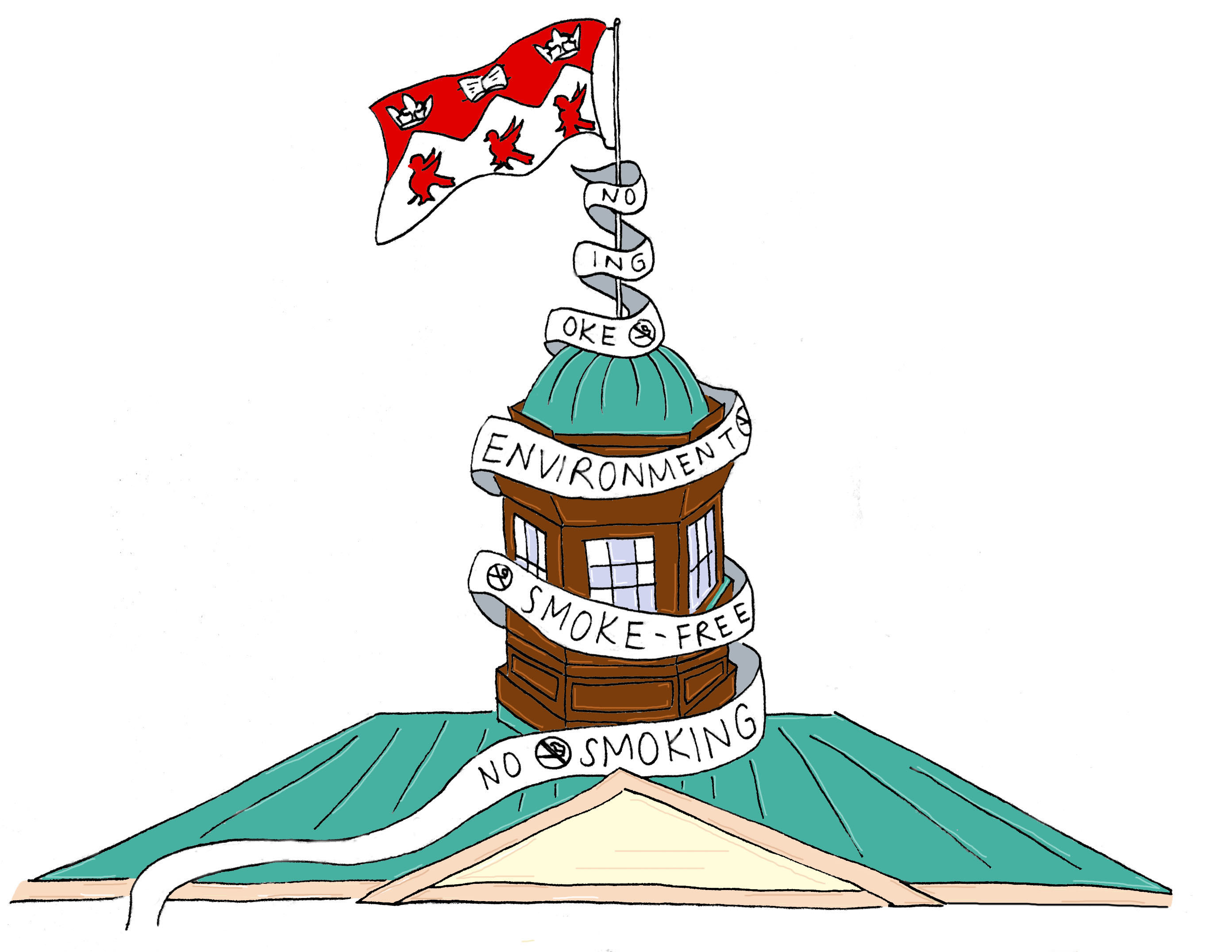On Oct. 18, McGill sent an email to students detailing a policy proposal on the movement towards a smoke-free campus. The proposal states that the Downtown Campus will prohibit smoking on the premises—aside from the Upper Residences, which will have a designated smoking area.
I am not a smoker. With that in mind, I still believe that the policy proposal put forward by McGill to move towards an entirely smoke-free campus is mistaken in its approach. This is not the best way to handle the needs of smokers versus those of non-smokers. Kicking smoking off campus is picking sides rather than accepting both smokers and non-smokers as members of the McGill community. A better solution would be to create several designated smoking areas throughout the Downtown Campus, which is something the Working Group recognized as important to maintain at Upper Residences. It is important on the rest of the campus, too.
Smoking is essentially a social and stress-relieving activity. These are two very important aspects of a McGill student’s life. McGill isn’t exactly known for its plethora of student services; it is a common complaint that the university’s support for its student body is lacking, especially when it comes to mental health services. It is possible that students are in part smoking to deal with the stress of McGill academics, and it would be wrong to put the squeeze on this function without offering up alternatives to students.
McGill has a responsibility to deal with its own smokers, not simply to push them off campus and make them somebody else’s problem. Smokers tend to congregate around each other, planting their roots in areas that quickly become littered with stubs and vacated of non-smokers. These areas currently exist around campus: What student isn’t familiar with the litany of nerve-wracked students huddled under the Redpath underpass, smoking to relieve the stress of a deadline? If these smokers were pushed off campus, they would have to migrate en masse. They might instead congregate across from the Roddick Gates, on the wide sidewalk in front of Paragraphe books, or to some other sheltered area nearby. Pushing the smokers off campus would create bubbles of McGill students smoking around the surrounding neighbourhood. This isn’t fair to nearby businesses and residents, and won’t help the reputation of students in the area. In any off-campus location, they would just be blocking the sidewalks, smoking, and getting in people’s way.
The maintenance of current designated smoking areas is a better solution than a totally smoke-free campus. These spaces offer a better and fairer balance between the needs of smokers and non-smokers at McGill. Designated smoking areas allow smokers a place to indulge in their stress-relieving habit as accepted members of the McGill community. They also keep smokers away from high-traffic areas to accommodate those who do not wish to be exposed to harmful secondhand smoke.
The proposal fails to consider McGill’s responsibility not just to protect its non-smokers, but also to also include its smokers. Students who smoke are as much a part of the McGill community as those who do not. It would be exclusionary to force them off of school grounds in order to partake in their habit—one that is in part a social way of dealing with stress. In order to protect those who do not wish to be exposed to secondhand smoke, while still acknowledging smokers as a part of the McGill community, the creation of designated smoking areas throughout campus is the best solution.









I’d just like to clarify that people from every walk of life at McGill (Faculty, Staff, Undergrads, Grads etc.) were consulted regarding the idea of a smoke free campus. 75% (or more) of the people in each of these groups were in favour of a smoke free campus. Several other universities, such as Dalhousie and Harvard have already done this. The aim of this policy is not to isolate or ostracize smokers. The aim is to reduce the negative externality that smoking on campus places on students at McGill. Student Societies intend to enhance education and resources for smoking cessation. For example, showing students how to take advantage of their insurance plans to get access to smoking cessation tools. There is also work being done to enhance education about other stress relieving tools available for students en lieu of smoking. If people want to continue smoking that is absolutely their prerogative, but it’s fair reduce the negative externality of the smoking on others. It’s not fair for students who don’t smoke to have to inhale the smoke cloud as they walk out of the library, even when there is constant signage that smoking is not allowed.
Oh yeah, it is totally ok for a majority to impose their rule on a minority, ostracize and isolate them because “it was your choice to start smoking”. Can I just remind you that statistically, the most successful smoking cessation therapy is the prescription of Varenicline by a doctor. The use of Varenicline has the highest abstinence rate (33.2%) of any single therapy. Yes. Even with the best methods known to man, only a third of smokers will quit. around 75% of smokers WANT to quit, but far less than a third will.